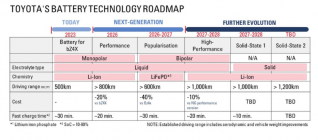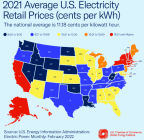jackieschmidt
Gold $$ Contributor
Just for you info, my Chevy Bolt EUV was fully charging to about 275 mile when it was really hot.I purchased a Toyota EV three months ago. It is made in partnership with Subaru, and both sell the same vehicle. So far I am very happy with it. It works well, rides well, and is cheap to fuel. So far I am only charging with 110V, but will install a 220V outlet soon. I only charge at home. I live in the PNW, and electricity is relatively cheap compared to other regions. Its like paying less than $1 per gallon for gas if I charge at home. The car is AWD, has two motors (and two batteries - one for each motor). The curb wt is about 4,500 lbs. it has a low center of gravity, due to the battery weight and location. Corners well. It has 8+ inches of true clearance. I hike a lot and expect to reach trailheads.
A full charge yields 260 miles. Winter may be different. But the car has equipment to heat and cool the battery. I charge to 90-100% at 110V. The range is enough for most purposes.
The car has 2-3 driving modes. If you want, it runs like a normal vehicle - no difference. Or you can slow down acceleration to conserve charge. The EVs have fast acceleration. And you can use the regeneration mode to recharge the battery when braking or slowing down. The recharging occurs when the front and back motors act as generators. It feels like you are downshifting when you let off on the accelerator pedal. If you like manual transmissions, you will like regen.
The initial environmental cost of the lithium battery exceeds the on-going environmental costs of gas for the first 5 years or 50K miles. After that, the EV comes out ahead. This assumes that the generation of the electricity has no substantial environmental cost. Again, I live in the PNW, so dams and hydro power. Plus and minus.
The real limit is charging infrastructure. I would not want to drive across Eastern Montana and North Dakota in the winter. But going from my small rural town to Seattle and back (160 miles) is no problem. I-5 corridor is charger rich. Not so much on SR20.
The Toyota does not qualify for the $7500 tax credit. However, if you lease the car, Toyota Leasing will pass on its $7500 credit to reduce the buyout price. I leased mine for 30 days, and then paid it off, to get the price reduction, at the dealer’s suggestion.
I am sure EVs are not for everybody. But I am very happy with mine. Each car from different makers is different, have competing strengths and weaknesses. It’s good to shop around and compare charging speed, battery capacity, driving comfort, factors. But I’m convinced there is no general rule that applies to every EV. They are all different from each other.
ETA: The Toyota BZ4X is kind of an ugly vehicle. it is a Rav4 in back and a 1908 Baker EV in front.
Now that things have cooled down, the full charge is just 250 miles.
I suspect when full winter gets here, it will be down to about 225.
I put my own 40 amp charger in, ran my own 220 outlet. Somewhere in this thread is a picture of my set up.















